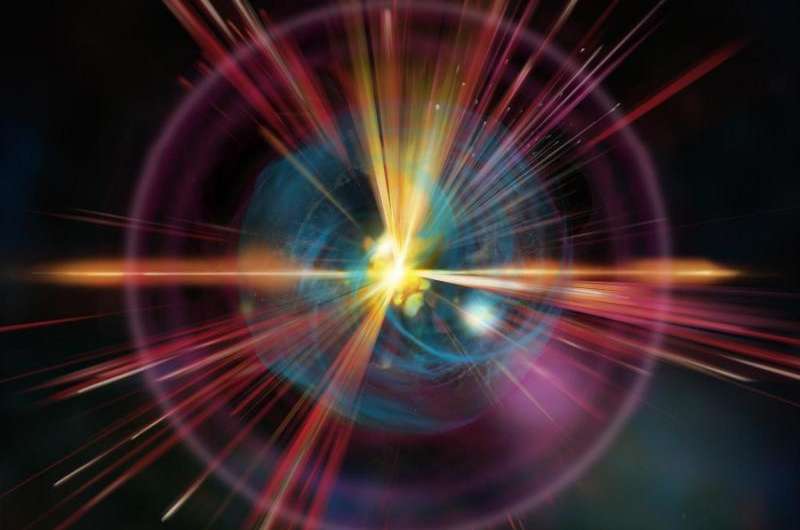May 4, 2015 report
Best of Last Week – Pondering the universe as hologram, Tesla's home battery and weak sunlight link to pancreatic cancer

(Phys.org)—It was a big week for physics as researchers at Aalto University, together with a team from Amherst College, have observed for the first time, a point-like monopole in a quantum field itself—a major step forward in quantum research. Also, other researchers revisited the question: Is the universe a hologram? Describing the universe apparently takes fewer dimensions than has been thought—the new research suggests that the holographic principle holds even in flat spacetime. A team with IBM announced that they have taken critical steps to building the first practical quantum computer—the ability to detect and measure both kinds of quantum errors at the same time and a circuit design that they claim is scalable. And scientists at Karlsruhe Institute of Technology in Germany devised a simple mathematical approach to designing mechanical invisibility cloaks—one in which a coordinate transformation is mapped directly onto a concrete one-component microstructure.
In space news, a team of researchers has found that a new exoplanet is too big for its star—and because of that it is challenging theories about planet formation. Also, a team of astrophysicists has drawn the most comprehensive map of the universe—a 3D rendering that spans nearly two billion light years.
In other news, Tesla's CEO plugged into a new market with a home battery system—the electric vehicle and rocket manufacturer wants to put its batteries into homes to store solar energy. And in an interesting study, a team of researchers at Johns Hopkins University found that Neurons constantly rewrite their DNA—demonstrating that DNA is not always stabilized at cell maturation. And scientists at Tongji University in China have demonstrated a way to improve the efficiency of wireless power transfer by using magnetic metamaterials—possibly allowing for greater distances between charging stations and battery powered devices.
And finally, if you are one of the millions of people in the world who avoid sunlight due to fear of skin cancer, or live in a high latitude place, you might be at an increased risk for another problem, as a team of researchers at San Diego School of Medicine has found that pancreatic cancer risk may be linked to weak sunlight—because of the reduced ability of the body to make Vitamin D.
© 2015 Phys.org





















